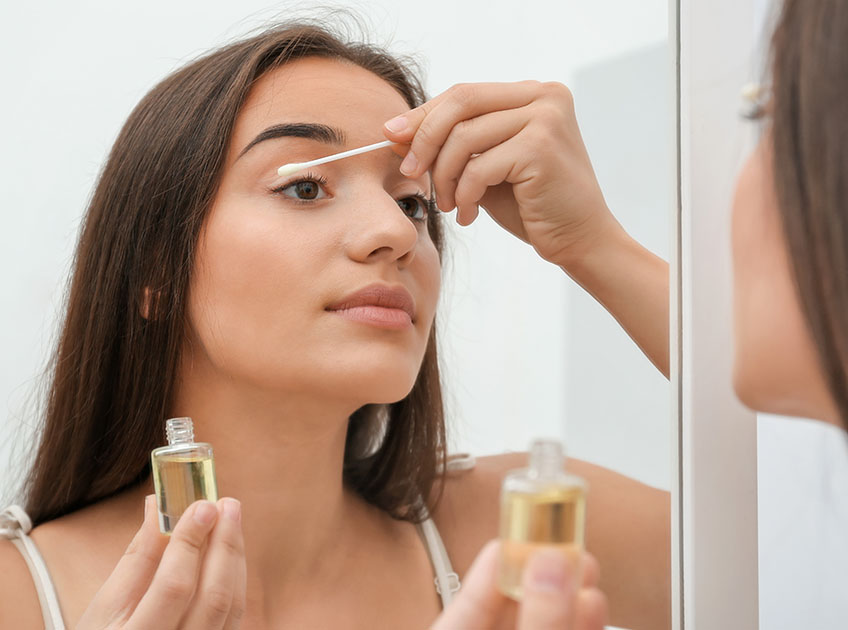Sensitive skin can be a challenge when it comes to makeup application. Many cosmetics on the market contain ingredients that can trigger irritation, redness, and breakouts in individuals with sensitive skin.

However, with the guidance of dermatologists and the availability of specialized products, it is possible to achieve a flawless look without compromising skin health.
So in this post, we will explore the world of dermatologist-recommended makeup for sensitive skin, providing you with valuable insights and recommendations.
Understanding Sensitive Skin
Sensitive skin is characterized by heightened reactivity to external stimuli, such as skincare products, weather conditions, and even makeup.
Common symptoms of sensitive skin include redness, itching, burning, and dryness. Individuals with sensitive skin often find it challenging to find makeup that doesn’t exacerbate these issues.
It is essential to choose products with ingredients that are gentle and non-irritating to maintain the skin’s health and appearance.
Dermatologist Tips for Sensitive Skin Makeup
Before delving into specific product recommendations, it’s essential to understand some general guidelines and tips provided by dermatologists for individuals with sensitive skin:
- Patch Testing: Always conduct a patch test when trying out a new makeup product. Apply a small amount of the product to a discreet area, such as the inside of your wrist, and wait for 24-48 hours to check for any adverse reactions.
- Fragrance-Free Products: Fragrances are common irritants in cosmetics. Opt for fragrance-free or hypoallergenic makeup to reduce the risk of irritation.
- Non-Comedogenic: Look for products labeled as non-comedogenic, meaning they won’t clog your pores. This can help prevent breakouts and acne flare-ups.
- Mineral Makeup: Mineral-based makeup products are often recommended for sensitive skin. They are free of many common irritants and provide excellent coverage.
- Sunscreen: Choose makeup products with built-in sunscreen (SPF 30 or higher) to protect your skin from UV damage.
- Hydrating Ingredients: Products with hydrating ingredients like hyaluronic acid and glycerin can help keep sensitive skin moisturized and reduce dryness.
Things to avoid and keep in mind
When choosing makeup for sensitive skin, it’s crucial to be discerning and cautious to avoid potential irritants that can exacerbate skin issues.
Here are some things to avoid and keep in mind:
- Fragrance: Avoid makeup products with added fragrances, as these can be a common source of skin irritation. Opt for fragrance-free or hypoallergenic options.
- Alcohol: Alcohol-based products can be drying and irritating to sensitive skin. Look for makeup products that are alcohol-free.
- Harsh Chemicals: Stay away from makeup products containing harsh chemicals, such as parabens, sulfates, and phthalates, which can be harsh on sensitive skin.
- Dyes and Colorants: Vibrant makeup shades often contain synthetic dyes and colorants that can trigger allergies or irritation. Choose products with natural pigments or mineral-based options.
- Heavy or Oil-Based Foundations: Heavy, oil-based foundations can clog pores and lead to breakouts. Opt for lightweight, oil-free, or water-based foundations.
- Powder Products with Talc: Talc can be a potential irritant for sensitive skin. Select powder products that are talc-free, such as those containing cornstarch or rice powder.
- Expired Products: Check the expiration date of makeup products. Using expired cosmetics can lead to skin issues, as the ingredients may break down or become contaminated.
- Non-Comedogenic Products: Choose makeup labeled as non-comedogenic, meaning it won’t clog pores. This can help prevent acne and breakouts.
- Patch Test: Always conduct a patch test when trying a new makeup product. Apply a small amount to a discreet area of your skin and monitor for any adverse reactions for 24-48 hours.
- Sunscreen: Sun protection is crucial for sensitive skin. Look for makeup products with added SPF or apply a separate broad-spectrum sunscreen before makeup application.
- Minimalist Ingredients: Simplify your makeup routine by using products with fewer ingredients. This reduces the risk of exposing your skin to potential irritants.
- Consult a Dermatologist: If you have persistent skin issues or are unsure about specific ingredients, consult a dermatologist. They can recommend products tailored to your skin type and concerns.
- Regular Cleansing: Always remove makeup thoroughly at the end of the day to prevent clogged pores and potential irritation. Use a gentle, fragrance-free makeup remover.
- Check for Allergens: If you have known allergies, carefully review the ingredient lists of makeup products to ensure they do not contain allergens that could trigger a reaction.
- Consider Makeup Brushes and Sponges: Clean your makeup brushes and sponges regularly to prevent the buildup of bacteria that can exacerbate skin problems.
Remember that everyone’s skin is unique, and what works for one person may not work for another. It’s essential to listen to your skin’s needs and pay attention to how it reacts to specific makeup products.
If you experience persistent irritation or skin issues, seek advice from a dermatologist, as they can provide personalized recommendations and treatment options to address your sensitive skin concerns
Conclusion on Dermatologist Recommended Makeup For Sensitive Skin
Choosing the right makeup products for sensitive skin requires careful consideration and research.
Dermatologists recommend products that are free of common irritants, fragrance-free, and non-comedogenic. The options and suggestions we have mentioned in this post are a great starting point for individuals with sensitive skin looking to enhance their beauty without compromising their skin’s health.
Remember to conduct patch tests and consult with a dermatologist for personalized recommendations to ensure your makeup routine is safe and effective for your sensitive skin.
And also don’t forget to the spread the word with your friends and family members too so that they can also get the best recommended makeup for their sensitive skin.
Thank You 🙂